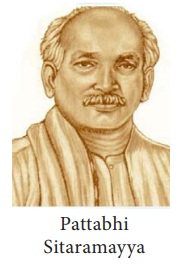India Nationalism: Gandhian Phase - First Congress Ministries under Government of India Act, 1935 | 10th Social Science : History : Chapter 8 : Nationalism: Gandhian Phase
Chapter: 10th Social Science : History : Chapter 8 : Nationalism: Gandhian Phase
First Congress Ministries under Government of India Act, 1935
First Congress Ministries under
Government of India Act, 1935
The
Government of India Act 1935 was one of the important positive outcomes of the
Civil Disobedience Movement. The key features of the Act were provincial
autonomy and dyarchy at the centre. The Act provided for an all India
Federation with 11 provinces, 6 Chief commissioner’s provinces and all those
Princely states which wished to join the federation. The Act also provided
autonomy to the provinces. All the subjects were transferred to the control of
Indian ministers. Dyarchy that was in operation in provinces was now extended
to the central government. The franchise, based on property, was extended though
only about ten percent of the population enjoyed the right to vote. By this Act
Burma was separated from India.
(a) Congress Ministries and their Work
The
Government of India Act 1935 was implemented with the announcement of elections
in 1937. The Congress immensely benefitted because of the Civil Disobedience
Movement. The Congress called off its programme of boycott of legislature and
contested elections. It emerged victorious in seven out of the eleven
provinces. It formed ministries in 8 provinces – Madras, Bombay, Central
Provinces, Orissa, Bihar, United Provinces, North West Frontier Province. In
Assam it formed a coalition government with Assam Valley Muslim Party led by
Sir Muhammad Sadullah. The Congress Ministries functioned as a popular government
and responded to the needs of the people. The salaries of ministers were
reduced from Rs. 2000 to Rs. 500 per month. Earlier action taken against
nationalists were rescinded. They repealed the Acts which vested emergency
powers in the government, lifted the ban imposed on political organisations
except the Communist Party, and removed the restrictions on the nationalist
press. Police powers were curbed and reporting by the CID on political speeches
discontinued. Legislative measures were adopted for reducing indebtedness of
the peasantry and improving the working conditions of the industrial labour.
Temple entry legislation was passed. Special attention was paid to education
and public health.
(b) Resignation of Congress Ministries
In 1939
the Second World War broke out. The colonial government of India entered the
War on behalf of the Allies without consulting the Congress ministries. The
Congress ministries resigned in protest. By 1940 he was demanding a separate
state for the Muslims.
(c) National Movement during the Second World War, 1939–45
In 1939
Subhas Chandra Bose became the President of the Congress by defeating Pattabhi
Sitaramayya, the candidate of Gandhi. When Gandhi refused to cooperate, Subhas
Chandra Bose resigned his post and started the Forward Bloc.

Related Topics